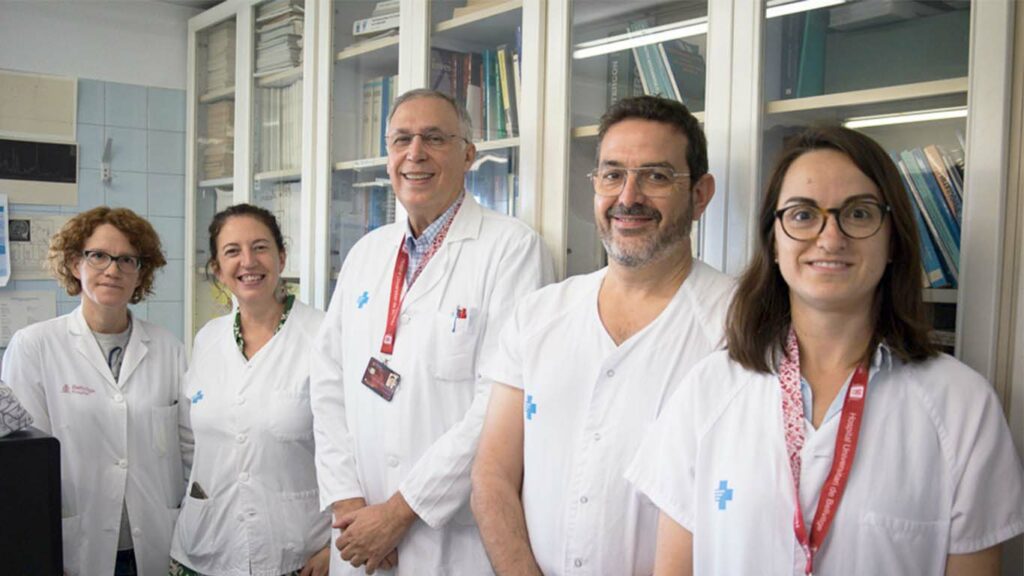About one in ten people with Obsessive-Compulsive Disorder (OCD) has a chronic and disabling form of the disease. These more severe cases are resistant to conventional treatments -psychotherapy and drugs- and entail suffering for patients and families. In recent years, deep brain stimulation has been studied as a therapeutic alternative for these patients. A multidisciplinary team from the Bellvitge University Hospital (HUB) and the Bellvitge Biomedical Research Institute (IDIBELL) has confirmed that this is a safe and effective technique, with a long-term reduction in obsessive symptoms by 42.5%.
Until now, knowledge of the long-term effects of this therapeutic option was very limited. The head of the HUB Psychiatrist Service and group leader at IDIBELL, José Manuel Menchón, coordinates the CIBERSAM group of the Carlos III Health Institute (ISCIII), which has studied the second largest sample of resistant OCD patients in the world treated with deep brain stimulation. His team, located in Bellvitge, has determined that this therapeutic option is a safe and effective alternative in the short and long term.
What is deep brain stimulation?
This is a surgical treatment that consists of implanting electrodes that allow the stimulation of specific points in the brain selectively and reversibly, achieving therapeutic benefits in treatment-resistant diseases, such as Parkinson’s disease, essential tremor, dystonia, or epilepsy. The HUB Psychiatry and Neurosurgery Services started the deep brain stimulation treatment program for patients with resistant and severe OCD in 2007.
The IDIBELL multidisciplinary team has studied the evolution of patients treated at this hospital between 2007 and 2020 for an average of 6.4 years. His data has been compared with the group of severe and resistant obsessive patients that refused deep brain stimulation. The results, published in the scientific journal Brain Stimulation, determine that, in addition to reducing obsessive symptoms, deep brain stimulation has also led to an improvement in anxiety and depression and a significant recovery of their functional capacity.
The study has also verified that few patients experience adverse effects and that most of them are mild and transient.
The Bellvitge Biomedical Research Institute (IDIBELL) is a biomedical research center created in 2004. It is participated by the Bellvitge University Hospital and the Viladecans Hospital of the Catalan Institute of Health, the Catalan Institute of Oncology, the University of Barcelona and the City Council of L’Hospitalet de Llobregat.
IDIBELL is a member of the Campus of International Excellence of the University of Barcelona HUBc and is part of the CERCA institution of the Generalitat de Catalunya. In 2009 it became one of the first five Spanish research centers accredited as a health research institute by the Carlos III Health Institute. In addition, it is part of the “HR Excellence in Research” program of the European Union and is a member of EATRIS and REGIC. Since 2018, IDIBELL has been an Accredited Center of the AECC Scientific Foundation (FCAECC).

